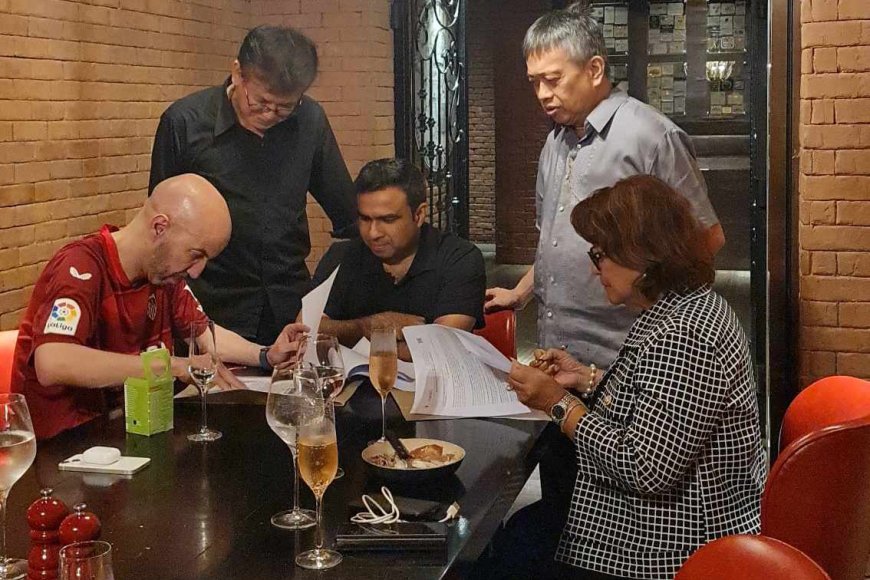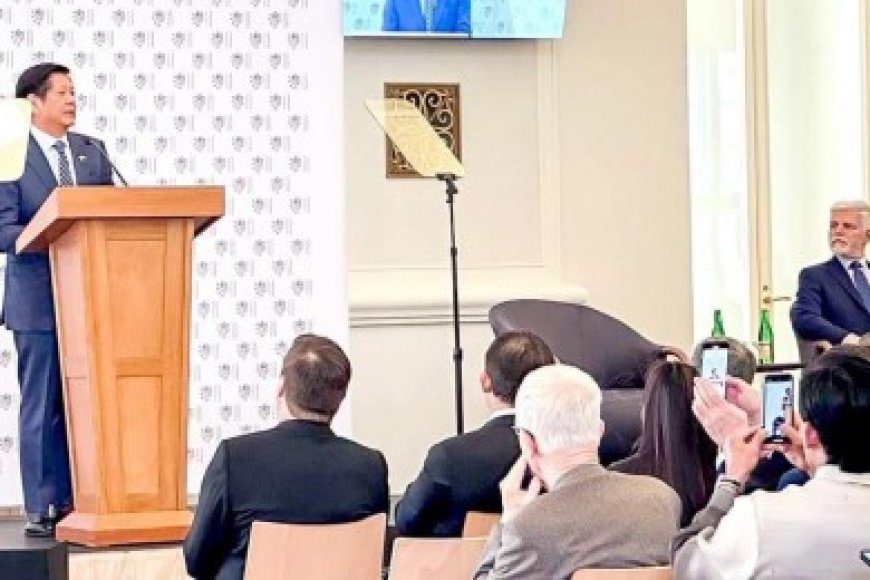BSP eyeing to remove fees on small transfers
THE BANGKO SENTRAL ng Pilipinas (BSP) wants to remove transaction fees for person-to-person electronic fund transfers and payments to small businesses, based on a draft circular. The central bank is eyeing to amend the Manual of Regulations for Payment Systems (MORPS) to “provide for the elimination of fees on electronic fund transfers for personal transactions, […]

THE BANGKO SENTRAL ng Pilipinas (BSP) wants to remove transaction fees for person-to-person electronic fund transfers and payments to small businesses, based on a draft circular.
The central bank is eyeing to amend the Manual of Regulations for Payment Systems (MORPS) to “provide for the elimination of fees on electronic fund transfers for personal transactions, up to a specified threshold on the number of transactions, and on payments for micro-merchants,” according to an exposure draft of the circular posted on its website.
BSP Governor Eli M. Remolona, Jr. earlier said the regulator has been employing moral suasion to influence the banking industry to permanently remove charges for small-value person-to-person online transactions.
The BSP has been encouraging banks since last year to formalize the removal of these fees to help boost digital payments.
The central bank said micro-merchants are end-users that avail of merchant payment acceptance activities and that fall under the definition of microenterprises in the Magna Carta for Micro, Small, and Medium Enterprises.
Micro-merchants have monthly aggregate gross receipts that do not exceed P250,000, it said.
“This includes end-users who utilize either merchant or personal accounts to facilitate acceptance of electronic fund transfers,” the BSP added.
Meanwhile, the proposed circular defines personal transactions as fund transfers “involving persons, which can either be a remittance or lending of funds, done for personal, family, or household purposes and not conducted in the ordinary course of business.”
“An end-user is considered using his account for personal transactions when the number of person-to-person electronic fund transfers from his account does not regularly exceed 10 times a week,” the BSP said.
The proposed circular seeks to amend MORPS Section 201, which contains rules on the fees imposed on transactions performed under the National Retail Payment System (NRPS) Framework, to say that personal transactions “shall be provided at no cost to consumers.”
“Accordingly, person-to-person electronic fund transfers shall be offered free of charge for personal transactions; provided, that transactions beyond the threshold set in the definition are still allowed subject to fees,” the BSP added.
The draft rules also seek to amend MORPS Section 503, which contains guidelines for Operators of Payment Systems-Merchant Acquisition License (OPS-MAL) to remove transaction fees for payments to micro-merchants.
“Notwithstanding the consumer pricing rules under the NRPS Framework and subsequent relevant issuances, OPS-MAL shall adopt a pricing mechanism whereby merchant fees may be charged to merchants availing of merchant payment acceptance activities; provided, that such fees shall be waived for those that are classified as micro-merchants,” the central bank said.
“The pricing mechanisms for merchants that are not covered by the exemption shall be reasonable, transparent, market-based, and proportional to the cost of the services offered in order to sustain the business operations of the parties involved,” it added.
Data from the central bank as of end-August showed that transfer fees through digital channels currently range from as low as P8 to as high as P200 for individual InstaPay or PESONet transactions.
The only BSFIs that do not impose any transfer fees for InstaPay or PESONet transactions are CIMB Bank Philippines, Inc.; Tonik Digital Bank, Inc.; UNOBank, Inc., and Own Bank, the Rural Bank of Cavite City, Inc.
Several other banks are currently offering small fund transfers free of charge for a limited period.
Sought for comment, Bank of the Philippine Islands (BPI) President and Chief Executive Officer Jose Teodoro K. Limcaoco said the draft rules are a welcome development.
“For BPI, I’m okay with the circular. There are some edits and clarifications that I’d like to make, but in general, the concept is (on) the right track,” Mr. Limcaoco told reporters on the sidelines of a briefing on Monday.
If the circular is approved, payment service providers (PSPs) will need to comply with the amended rules by April 1, 2025.
The draft circular also proposes to lift the moratorium on the increase of fee for InstaPay and PESONet transactions for PSPs upon the implementation of the circular.
Data from the BSP showed that the value of transactions done through InstaPay and PESONet climbed by 34.6% to P9.45 trillion in the January-July period from a year ago.
The combined volume of transactions coursed through the automated clearing houses jumped by 64.6% to 786.2 million year on year. — Luisa Maria Jacinta C. Jocson























